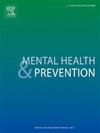Whāia te iti kahurangi: Seeking perinatal mental health equity. Māori offer solutions for the health system
Q2 Medicine
引用次数: 0
Abstract
Objectives
In Aotearoa, New Zealand (NZ), Māori experience significant perinatal health inequities. Perinatal mental health and maternal suicide are critical equity issues for Aotearoa, NZ's health system and require a systems level response. Health equity is mandated in Aotearoa, NZ, through Te Tiriti o Waitangi, however, Māori continue to face inequitable access to services, resources, and best practice perinatal healthcare. Qualitative data can enhance our understanding of a health system's impact and performance. The purpose of this paper is to utilise qualitative data to identify how Aotearoa, NZ's health system is performing, from the perspectives of Māori mothers and birthing parents experiencing perinatal mental illness.
Design
This qualitative research is grounded in Kaupapa Māori Research methodology. Kaupapa Māori Research methodology is an Indigenous research methodology that privileges the voices of Māori in the design and implementation of research. Semi structured interviews were undertaken with twenty Māori mothers/birthing parents with experience of perinatal mental illness. All participants had accessed a community perinatal mental health service within the previous 12 months.
Results
Expert analysis from Māori mothers and birthing parents identified key recommendations relating to services, treatment, workforce, and communication and education. These recommendations were grouped into sub-themes encompassing options, access and barriers, and whānau. The recommendations encompassed participants’ perceptions of how the health system can enhance efficiency, improve health outcomes and achieve equity for Māori within the perinatal period.
Conclusion
To achieve Māori health equity in the perinatal period, systemic and structural transformation of the perinatal health system is required. The recommendations identified by Māori mothers and birthing parents in this study can be applied at clinical, service, and system levels to remove the structural barriers faced by Māori in the perinatal health system and be utilised in the development of an equitable, early intervention and prevention focused perinatal mental health system.
Whāia te iti kahurangi:寻求围产期心理健康平等。毛利人为医疗系统提供解决方案
目标在新西兰奥特亚罗瓦,毛利人在围产期健康方面遭受着严重的不公平待遇。围产期心理健康和孕产妇自杀是新西兰奥特亚罗瓦卫生系统面临的关键性公平问题,需要采取系统层面的应对措施。新西兰奥特亚罗瓦(Aotearoa)通过 "怀唐伊原则"(Te Tiriti o Waitangi)规定了健康公平,然而,毛利人在获得服务、资源和最佳围产期保健实践方面仍然面临着不公平。定性数据可以加深我们对医疗系统的影响和绩效的理解。本文旨在利用定性数据,从患有围产期精神疾病的毛利母亲和分娩父母的视角出发,确定新西兰奥特亚罗瓦医疗系统的表现。Kaupapa毛利研究方法是一种土著研究方法,在设计和实施研究时优先考虑毛利人的声音。我们对 20 名有围产期精神疾病经历的毛利母亲/分娩父母进行了半结构式访谈。所有参与者在过去的12个月内都曾接受过社区围产期精神健康服务。结果通过对毛利母亲和分娩父母的专家分析,确定了与服务、治疗、劳动力以及沟通和教育有关的主要建议。这些建议被分为几个子主题,包括选择、获取和障碍,以及whānau。这些建议涵盖了参与者对卫生系统如何在围产期提高效率、改善卫生成果和实现毛利人的平等的看法。毛利母亲和分娩父母在本研究中提出的建议可以应用于临床、服务和系统层面,以消除毛利人在围产期保健系统中面临的结构性障碍,并用于发展一个公平、早期干预和预防为主的围产期心理健康系统。
本文章由计算机程序翻译,如有差异,请以英文原文为准。
求助全文
约1分钟内获得全文
求助全文
来源期刊

Mental Health and Prevention
Medicine-Psychiatry and Mental Health
CiteScore
2.10
自引率
0.00%
发文量
22
审稿时长
24 days
 求助内容:
求助内容: 应助结果提醒方式:
应助结果提醒方式:


